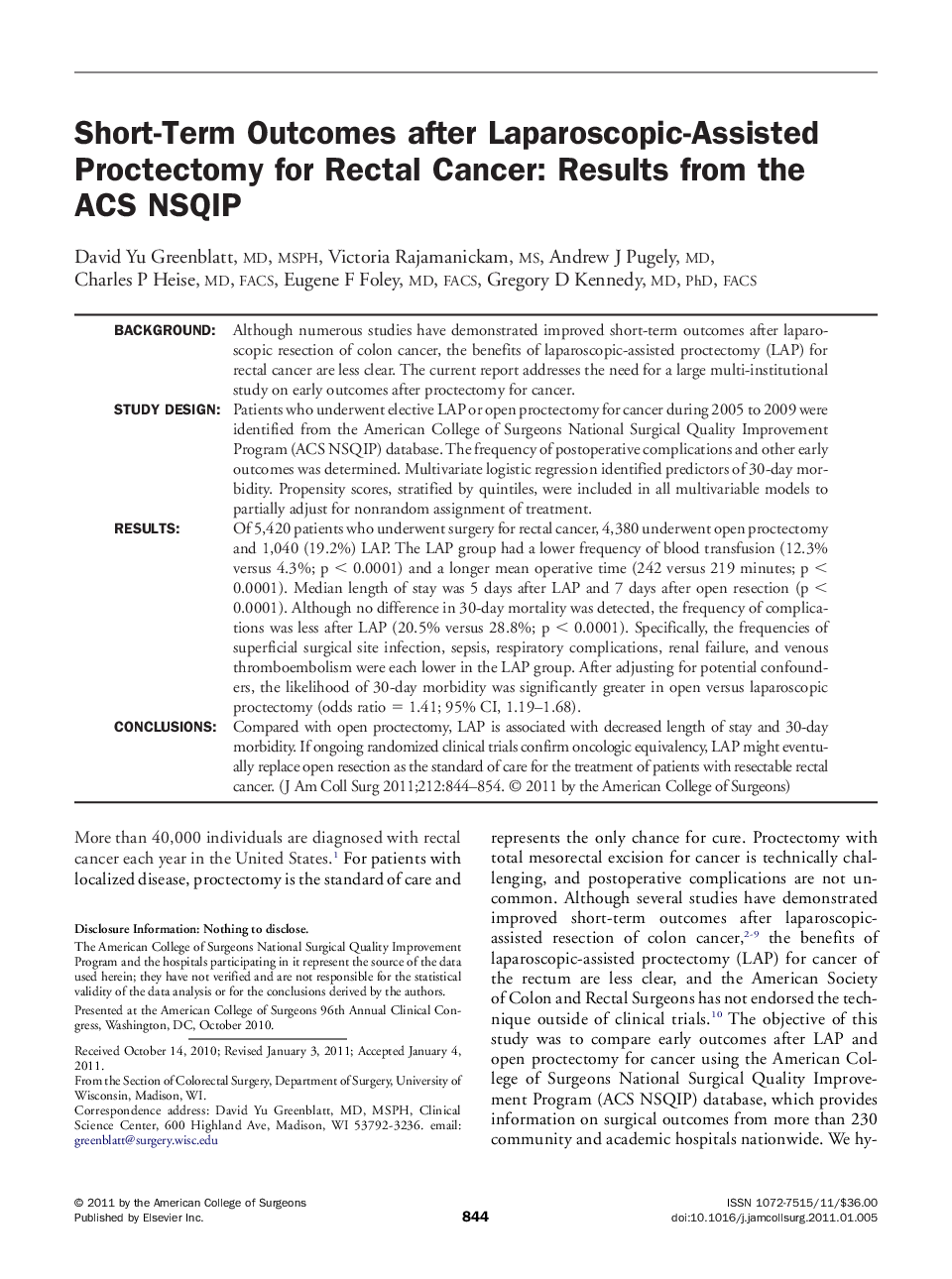| Article ID | Journal | Published Year | Pages | File Type |
|---|---|---|---|---|
| 4293214 | Journal of the American College of Surgeons | 2011 | 11 Pages |
BackgroundAlthough numerous studies have demonstrated improved short-term outcomes after laparoscopic resection of colon cancer, the benefits of laparoscopic-assisted proctectomy (LAP) for rectal cancer are less clear. The current report addresses the need for a large multi-institutional study on early outcomes after proctectomy for cancer.Study DesignPatients who underwent elective LAP or open proctectomy for cancer during 2005 to 2009 were identified from the American College of Surgeons National Surgical Quality Improvement Program (ACS NSQIP) database. The frequency of postoperative complications and other early outcomes was determined. Multivariate logistic regression identified predictors of 30-day morbidity. Propensity scores, stratified by quintiles, were included in all multivariable models to partially adjust for nonrandom assignment of treatment.ResultsOf 5,420 patients who underwent surgery for rectal cancer, 4,380 underwent open proctectomy and 1,040 (19.2%) LAP. The LAP group had a lower frequency of blood transfusion (12.3% versus 4.3%; p < 0.0001) and a longer mean operative time (242 versus 219 minutes; p < 0.0001). Median length of stay was 5 days after LAP and 7 days after open resection (p < 0.0001). Although no difference in 30-day mortality was detected, the frequency of complications was less after LAP (20.5% versus 28.8%; p < 0.0001). Specifically, the frequencies of superficial surgical site infection, sepsis, respiratory complications, renal failure, and venous thromboembolism were each lower in the LAP group. After adjusting for potential confounders, the likelihood of 30-day morbidity was significantly greater in open versus laparoscopic proctectomy (odds ratio = 1.41; 95% CI, 1.19–1.68).ConclusionsCompared with open proctectomy, LAP is associated with decreased length of stay and 30-day morbidity. If ongoing randomized clinical trials confirm oncologic equivalency, LAP might eventually replace open resection as the standard of care for the treatment of patients with resectable rectal cancer.
